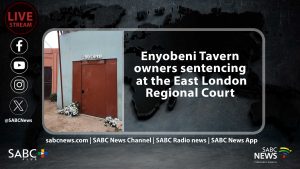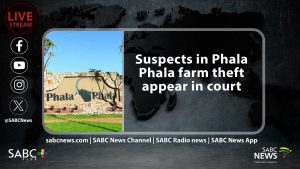SA youth less optimistic about voting
SHARE THIS PAGE!
With the elections less than a year away, the euphoria that marked the first all-race elections in 1994 seems to have died down. At that time, South Africa had just over 22 million people of voting age and almost 20 million voted.
Although the number of potential voters increased over time, the interest in elections dwindled. Only less than half of the voting-age population voted in the last national and provincial elections.
The 1994 national elections swept aside three centuries of racist apartheid rule. It euphorically opened the first fully democratic government in South Africa. Global icon Nelson Mandela became president.
At the time, the country had 22.7 million potential voters and 19.5 million of them voted representing 86 % voter turnout. And the excitement was all over.
“I feel very proud, I wanted my people to have liberty, they must have democracy,” says one person at the time.
Another person says, “I think this is a very historic moment not just in South Africa but the rest of Africa. It is history in the making, this is what people have been fighting for years and have finally achieved what they have fighting for. It’s a great feeling and I am very happy and I hope that the party that I am going to put in there will win.”
South Africa was accepted in the community of beings. With a vibrant constitution and a strong judiciary, it became a beacon of hope for the continent. But compounded by rampant crime and the worsening energy crisis among others, some electorates say it seems Nelson Mandela’s dream of a better life for all has been deferred.
Loss of interest
Although the number of potential voters increased over the years, voter turnout dwindled with every election. In the last national elections, only less than half of the 35.8 million of the voting age population voted. These young people seem not interested in voting.
“No, I haven’t because these people are interested in themselves, the reason why I didn’t register and will not vote is not important to me and I don’t benefit anything from them.”
Another young person says, “I didn’t see the need to register firstly because of load shedding and youth unemployment, so I didn’t see the need to register and vote.”
There has been concern over unregistered voters:
But President Cyril Ramaphosa says the bit-by-bit government is working to address the concerns of the country’s poor and marginalised.
“I know other people want us to focus on the darker side of the moon, I want to focus on the brighter side of the moon and that is the message I am getting from our people. They want the problems that we are going through now to be solved and that they are saying with great enthusiasm. I am saying we are looking forward, we know what the problems are crime and unemployment and they can see the efforts that we are making.”
Voter registration
Despite fears of voter apathy, IEC Chief Electoral, Sy Mamabolo, says they are pleased to have a substantial number of young people registering for elections last weekend.
“The IEC is pleased to have interacted with 2,9 million voters during the first weekend. Eligible voters registering for the first time, 568 000 and this accounts for 19,57 % of the registration activity. Young people in the age category 16-29 account for 445 000 or 78,31% of the new registration. So, therefore the IEC focus on young people is beginning to yield results.”
And as the country goes to election in less than a year, it has 39.7 million voting age population. Whether a substantial number of these potential voters will turn out in their numbers on election day will only depend on whether the key stakeholders in the elections and political parties have managed to convince the electorate.


LIVE: Phala Phala farm theft case
5 hours ago